June 1, 2025 | 23:21 GMT +7
June 1, 2025 | 23:21 GMT +7
Hotline: 0913.378.918
June 1, 2025 | 23:21 GMT +7
Hotline: 0913.378.918
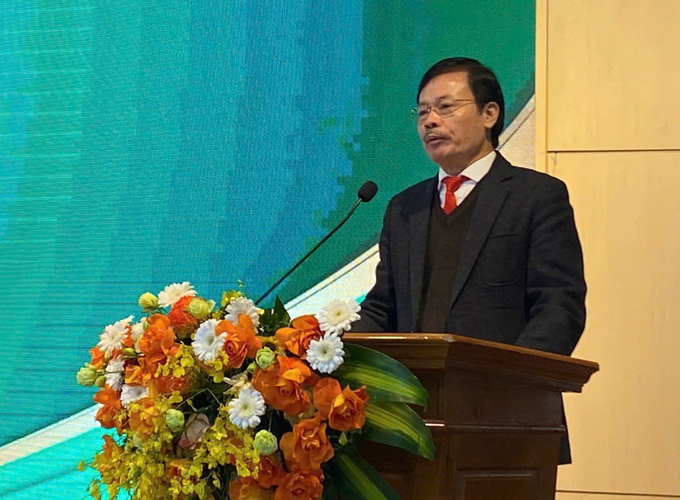
Mr. Nguyen Xuan Duong, Chairman of the Vietnam Animal Husbandry Association: The livestock industry still has a big 'pain' of not being able to export many products. Photo: Minh Ha.
Mr. Nguyen Xuan Duong, Chairman of the Vietnam Livestock Association, addressed the 2024 Forum on Enterprises Supporting Farmers and Sustainable Development in Hanoi on the morning of December 18. He acknowledged that the livestock sector in Vietnam is faced with a substantial "pain point"—its inability to export a substantial volume of products—despite its accomplishments.
Livestock is essential for the preservation of food security and sustenance, as it is one of the four main agricultural sectors. Nevertheless, Vietnam's domestic livestock market is still underdeveloped in comparison to other countries, and its export levels are modest in comparison to other agricultural sectors. Mr. Duong emphasized the significant obstacles that the industry is currently facing, such as the limited space available for livestock farming as a result of the high population density.
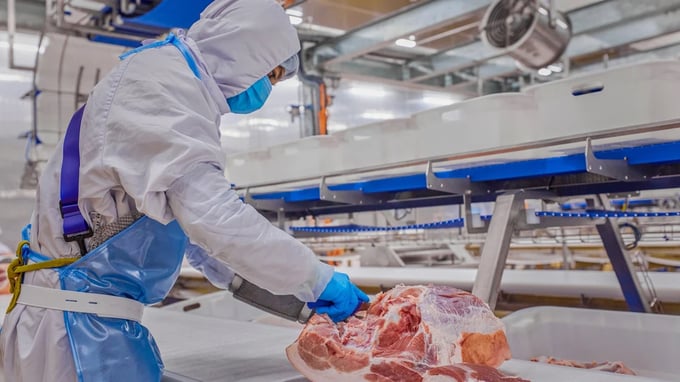
Vietnam's exports of animals and animal products are still very modest.
Vietnam's livestock density is among the highest in the globe. For example, the nation is the sixth largest in the world for swine farming and is second only to China in waterfowl farming.
In contrast, domestic production has experienced a mere 2-3% growth rate, while imports of livestock products have been expanding at a rapid pace, with annual growth rates of 15-20% for pork and poultry.
Mr. Duong underscored that Vietnam's livestock industry is gradually transitioning toward sustainability and professionalism, which presents opportunities for businesses to redefine their development strategies, enhance value, and satisfy integration requirements, despite these challenges.
He advocated for eliminating obsolete and superfluous procedural obstacles, including the existing product conformity announcement regulations, which he characterized as excessively formalistic. These regulations result in the inflation of product prices, the loss of business opportunities, and the promotion of negative practices, all of which are superfluous for both individuals and businesses.
To improve the competitiveness of domestic products, reduce costs, and expedite processes, Mr. Duong suggested the merger of the Law on Product and Goods Quality with the Law on Standards and Technical Regulations. He also emphasized the importance of businesses collaborating with farmers to promote the livestock industry's growth, recognizing their significant role in rural development and the agricultural value chain.

Mr. Ho Xuan Hung, Chairman of the General Association of Agriculture and Rural Development, called on businesses to actively contribute ideas to the authorities to promptly adjust mechanisms and policies. Photo: Tung Dinh.
Mr. Ho Xuan Hung, Chairman of the Vietnam General Association of Agriculture and Rural Development, agreed with Mr. Duong's opinion on the role of enterprises in the attainment of agricultural triumphs during the initial 11 months of 2024.
Nevertheless, he emphasized that the number of businesses investing in this sector is still relatively low as a result of the absence of sufficiently robust mechanisms and policies that promote and support business participation. Furthermore, the current initiatives to mobilize, attract, and facilitate business engagement are ineffective, which has led to a restricted appeal. The connection between enterprises and farmers is also weak, resulting in a passive position for farmers in terms of production and consumption.
Mr. Hung encouraged enterprises to participate in networking activities, suggesting ideas and solutions to government agencies to promptly modify policies and mechanisms to reflect current circumstances. He encouraged all stakeholders to work together to establish a sustainable and environmentally friendly agricultural foundation.
Translated by Linh Linh
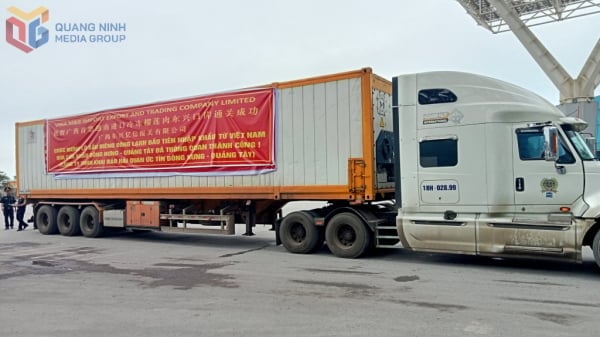
(VAN) After the talks on May 28, Vietnam successfully exported its first batch of frozen durians to China, marking a new milestone in agricultural trade cooperation between the two countries.
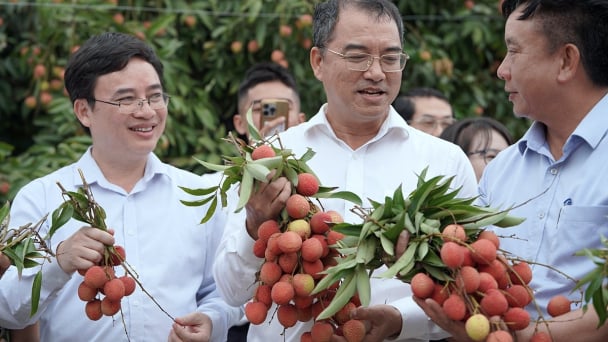
(VAN) Several major companies, such as Red Dragon and Ameii Vietnam, have signed purchasing agreements for the 2025 season, targeting markets including Japan, the United States, and the EU.
/2025/05/30/5010-5-173638_943.jpg)
(VAN) On May 29, at the GO! My Tho Trading Center, the Tien Giang Department of Industry and Trade, in collaboration with Central Retail Corporation, held the opening ceremony of the 3rd Fruit Festival 2025.
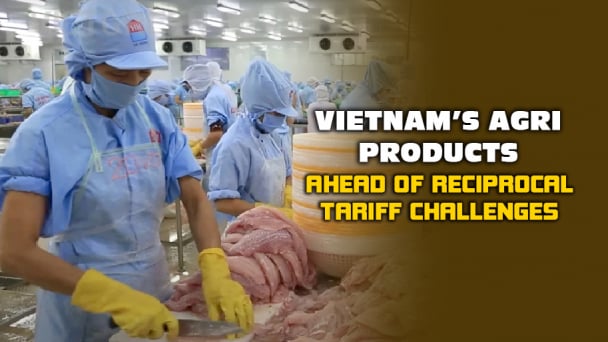
(VAN) Reciprocal tariffs are exerting pressure on U.S. exports, prompting Vietnamese firms to shift their focus to Muslim markets, Thailand, and Brazil.
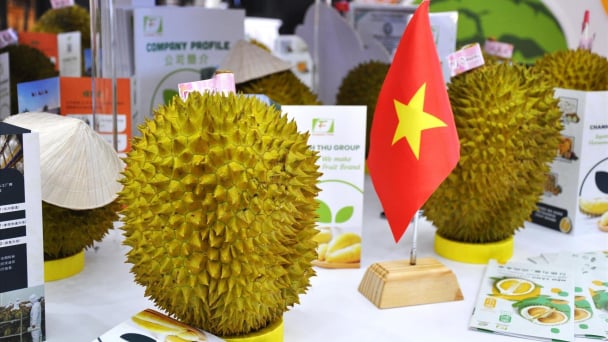
(VAN) A free booth for two years at Xinfadi, Beijing's largest wholesale market, will be allocated to Vietnam's agricultural products.
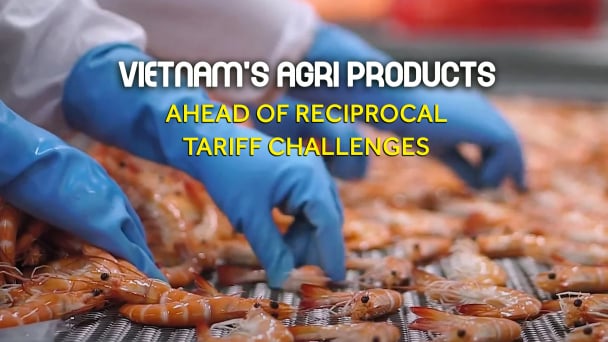
(VAN) Vietnamese shrimp exporters are actively looking for alternative markets and accelerating shipments to the United States in response to the pressure of impending reciprocal tariffs. This is occurring during a temporary tariff suspension.

(VAN) The import-export turnover between Vietnam and Singapore rose amid a trade rebound, with machinery, electrical equipment, and fuels making up the majority of the transaction value.